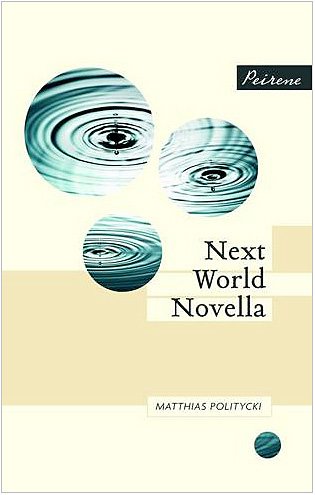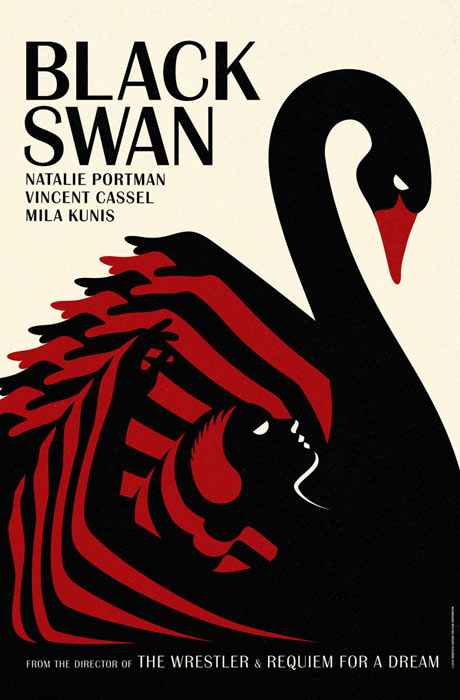'You're always together.'
The Twin
by Gerbrand Bakker
translated by David Colmer
I don't want to sound like I'm sucking up to any publishers when I draw attention to their output, it is usually more to point out the distinguishing features of the books they publish, those things that give a sense of the ethos behind the colophon. I say this because I was sent a couple of books by Harvill Secker and they are both bloody brilliant, so good that I feel the need to point it out and even swear a little bit. The first, I Am A Chechen, was reviewed here - an important and wildly creative work born out of the conflict in the Chechen Republic, a book that I have been saddened to see received virtually no press attention. This novel is very different, having received plenty of attention after winning the Impac Award last year but no less deserving of praise from me because of that. Books that are reserved and controlled can often bring forth a passionate response in their readers, as if some kind of compensation comes in to play, and The Twin is such a book. As I attempt to give an impression of the power of this quiet book be in no doubt that in my humble opinion The Twin is a magnificent novel.
The idea for the novel came from Bakker wanting to write about a son who treats his father appallingly. That man is Helmer van Wonderen who opens the novel by moving his elderly father from his downstairs room to a bedroom upstairs, the opposite move you might expect for a man in poor health and an immediate hint of the way in which he intends to hasten his father's decline. Spartan surroundings, a permanently open window, infrequent meals, Helmer mounts a campaign of domestic terrorism which leaves the reader uncomfortable and wondering what reason he could have for treating him so badly - 'Staring up at the ceiling I realise that everything would be very different if I had someone, if I was married with children. When you have a family you can get rid of your father without feeling guilty.' At the same time he is stripping back the house, removing old furniture, repainting walls and floors with primer, almost as though he is trying to remove the traces of the family home that used to be. Whilst he carries out these labours a large hooded crow takes up residence outside the house, clearly visible form the window and standing like some kind of ill-omen, something fulfilled by the arrival of a letter that suddenly brings the past hurtling into the present. The letter comes from Riet who was the girlfriend of his twin brother Henk and who was also at the wheel of the car they shared when it spun off the road back in 1967 to land in a lake where Henk drowned.
Whilst he carries out these labours a large hooded crow takes up residence outside the house, clearly visible form the window and standing like some kind of ill-omen, something fulfilled by the arrival of a letter that suddenly brings the past hurtling into the present. The letter comes from Riet who was the girlfriend of his twin brother Henk and who was also at the wheel of the car they shared when it spun off the road back in 1967 to land in a lake where Henk drowned.
This event unsurprisingly had far-reaching consequences. Riet was sent away by Henk and Helmer's father and with the loss of the son who had been primed to take over the farm he recalled Helmer from Amsterdam where he had been studying in order to learn his trade. So this is partly a novel of frustration and we begin to get an insight into Helmer's actions in the present day but it is far more than that. Looking back on his childhood we learn something of the unique bond between the two brothers. Themes of comparison and differentiation crop up in many different ways and as the boys go through adolescence, a time when the body goes through some of its biggest changes there is a touching intimacy in the way the two of them share a bed on occasion and Helmer finds in his brother someone whom he 'fits' perfectly. That bond is jeapordised by the arrival of Riet of course and the manner in which one brother becomes an excluded observer is brilliantly realised with the reader becoming as much a voyeur as the sidelined Helmer.
Bakker himself worked as a subtitler on nature films before training as a gardener but has been writing for many years beginning with children's fiction. He is not the product of a creative writing course or degree in literature and I can't help but wonder if that and his clear connection to nature is fundamental to this novel's success and in some way. The prose is pared back to the bone, its simplicity a stylistic statement in itself, and this helps to make the daily descriptions of the rural life of its protagonist and the Dutch countryside that surrounds him attain a poetic beauty whilst not having any kind of obvious poetic flourishes.
The Netherlands is a country reclaimed from the sea and its cultivation has always been about maintaining defences against the water that always threatens to overwhelm it once again. It is the perfect landscape for this story of a man and the past that always threatens to return with its full force and overwhelm his own stoutly constructed defences. That simple prose acts in the same way, reflecting the controlled behaviour of the characters but always threatening to explode as past events and feelings long buried rise to the surface. This isn't always in a traumatic sense, Helmer's plain speaking even leads to moments of surprising humour ('Mother was an outrageously ugly woman') but there is no avoiding the generally bleak tone as Helmer confronts his family life. We learn about his now deceased mother and the 'alliance of glances' that they shared to support one another against the tyranny of his father and having lost his brother, the further devastating loss of his mother.
The original title of this novel in Dutch translates as 'It Is Quiet' something that reflects the prose and surroundings of this book. That style means that some readers might not immediately connect to it in the way that I did and lose patience but the hidden power in that quiet is always felt and the book's themes of loss, separation and frustration are all the more effectively portrayed because of it. Read more...
by Gerbrand Bakker
translated by David Colmer
I don't want to sound like I'm sucking up to any publishers when I draw attention to their output, it is usually more to point out the distinguishing features of the books they publish, those things that give a sense of the ethos behind the colophon. I say this because I was sent a couple of books by Harvill Secker and they are both bloody brilliant, so good that I feel the need to point it out and even swear a little bit. The first, I Am A Chechen, was reviewed here - an important and wildly creative work born out of the conflict in the Chechen Republic, a book that I have been saddened to see received virtually no press attention. This novel is very different, having received plenty of attention after winning the Impac Award last year but no less deserving of praise from me because of that. Books that are reserved and controlled can often bring forth a passionate response in their readers, as if some kind of compensation comes in to play, and The Twin is such a book. As I attempt to give an impression of the power of this quiet book be in no doubt that in my humble opinion The Twin is a magnificent novel.
The idea for the novel came from Bakker wanting to write about a son who treats his father appallingly. That man is Helmer van Wonderen who opens the novel by moving his elderly father from his downstairs room to a bedroom upstairs, the opposite move you might expect for a man in poor health and an immediate hint of the way in which he intends to hasten his father's decline. Spartan surroundings, a permanently open window, infrequent meals, Helmer mounts a campaign of domestic terrorism which leaves the reader uncomfortable and wondering what reason he could have for treating him so badly - 'Staring up at the ceiling I realise that everything would be very different if I had someone, if I was married with children. When you have a family you can get rid of your father without feeling guilty.' At the same time he is stripping back the house, removing old furniture, repainting walls and floors with primer, almost as though he is trying to remove the traces of the family home that used to be.
 Whilst he carries out these labours a large hooded crow takes up residence outside the house, clearly visible form the window and standing like some kind of ill-omen, something fulfilled by the arrival of a letter that suddenly brings the past hurtling into the present. The letter comes from Riet who was the girlfriend of his twin brother Henk and who was also at the wheel of the car they shared when it spun off the road back in 1967 to land in a lake where Henk drowned.
Whilst he carries out these labours a large hooded crow takes up residence outside the house, clearly visible form the window and standing like some kind of ill-omen, something fulfilled by the arrival of a letter that suddenly brings the past hurtling into the present. The letter comes from Riet who was the girlfriend of his twin brother Henk and who was also at the wheel of the car they shared when it spun off the road back in 1967 to land in a lake where Henk drowned.This event unsurprisingly had far-reaching consequences. Riet was sent away by Henk and Helmer's father and with the loss of the son who had been primed to take over the farm he recalled Helmer from Amsterdam where he had been studying in order to learn his trade. So this is partly a novel of frustration and we begin to get an insight into Helmer's actions in the present day but it is far more than that. Looking back on his childhood we learn something of the unique bond between the two brothers. Themes of comparison and differentiation crop up in many different ways and as the boys go through adolescence, a time when the body goes through some of its biggest changes there is a touching intimacy in the way the two of them share a bed on occasion and Helmer finds in his brother someone whom he 'fits' perfectly. That bond is jeapordised by the arrival of Riet of course and the manner in which one brother becomes an excluded observer is brilliantly realised with the reader becoming as much a voyeur as the sidelined Helmer.
Bakker himself worked as a subtitler on nature films before training as a gardener but has been writing for many years beginning with children's fiction. He is not the product of a creative writing course or degree in literature and I can't help but wonder if that and his clear connection to nature is fundamental to this novel's success and in some way. The prose is pared back to the bone, its simplicity a stylistic statement in itself, and this helps to make the daily descriptions of the rural life of its protagonist and the Dutch countryside that surrounds him attain a poetic beauty whilst not having any kind of obvious poetic flourishes.
I've milked the cows, day after day. In a way I curse them, the cows, but they're also warm and serene when you lean your forehead on their flanks to attach the teat cups. There is nothing as calming, as protected, as a shed full of sedately breathing cows on a winter's evening. Day in, day out, summer, autumn, winter, spring.
The Netherlands is a country reclaimed from the sea and its cultivation has always been about maintaining defences against the water that always threatens to overwhelm it once again. It is the perfect landscape for this story of a man and the past that always threatens to return with its full force and overwhelm his own stoutly constructed defences. That simple prose acts in the same way, reflecting the controlled behaviour of the characters but always threatening to explode as past events and feelings long buried rise to the surface. This isn't always in a traumatic sense, Helmer's plain speaking even leads to moments of surprising humour ('Mother was an outrageously ugly woman') but there is no avoiding the generally bleak tone as Helmer confronts his family life. We learn about his now deceased mother and the 'alliance of glances' that they shared to support one another against the tyranny of his father and having lost his brother, the further devastating loss of his mother.
After her death I didn't have anyone left to look at, to look with - that was the worst of it. The alliance had been unilaterally dissolved. I found it - and find it - very difficult to look Father straight in the eye. In Mother's eyes I always saw Henk's shadow and I assumed that she saw the same in mine. (of course, she also saw Henk in my body as a whole, in my eyes she saw him double.)All of this remembrance comes at the same time as the events put in motion by that letter from Riet. Her reason for writing was that she wants her possibly delinquent 18-year-old son to come and stay with Helmer and learn some discipline by helping out on the farm. There is plenty more 'plot' within this storyline but the dialogue between them is particularly well-written, in fact the dialogue as a whole is brilliant, written with a playwright's ear and instinct for what to leave out. Helmer's nosey neighbour and the comic interactions between Helmer and her young sons are other highlights that lend some much-needed levity to proceedings.
The original title of this novel in Dutch translates as 'It Is Quiet' something that reflects the prose and surroundings of this book. That style means that some readers might not immediately connect to it in the way that I did and lose patience but the hidden power in that quiet is always felt and the book's themes of loss, separation and frustration are all the more effectively portrayed because of it. Read more...























